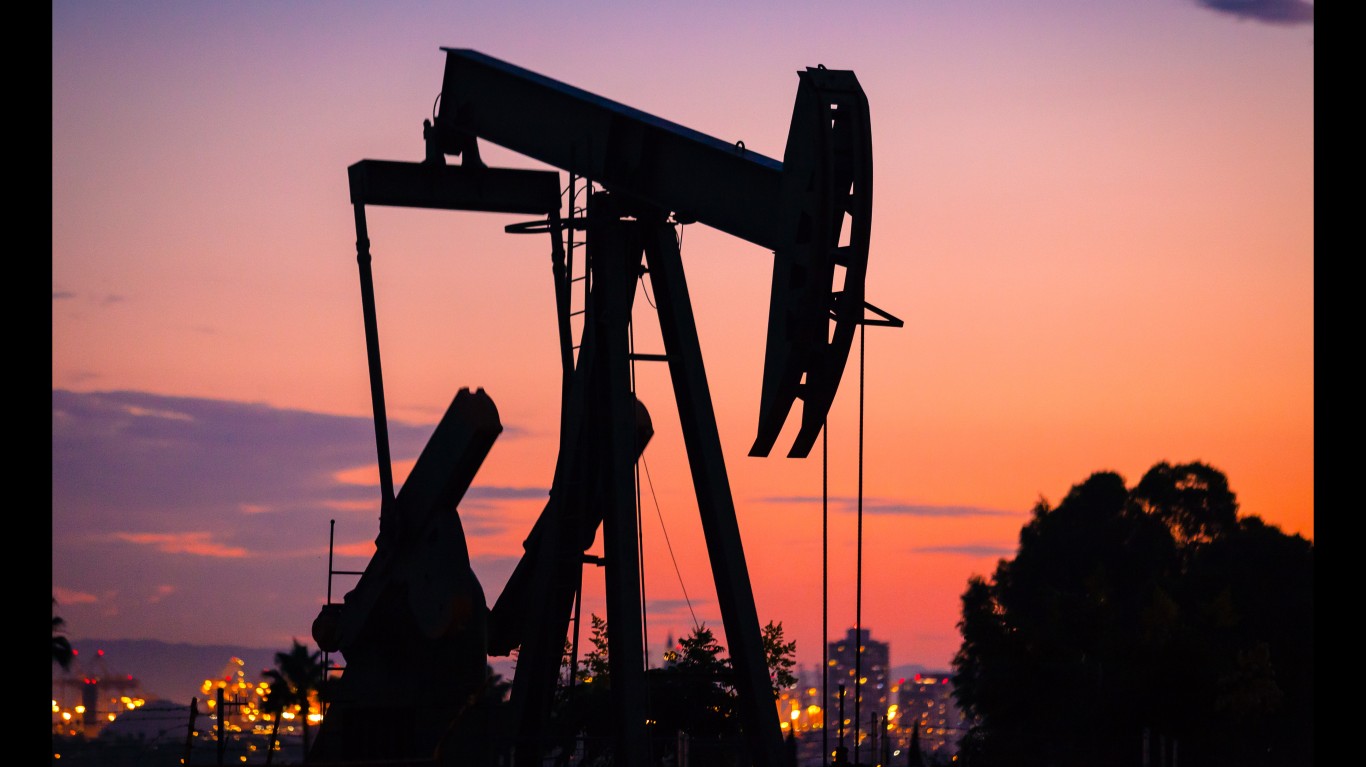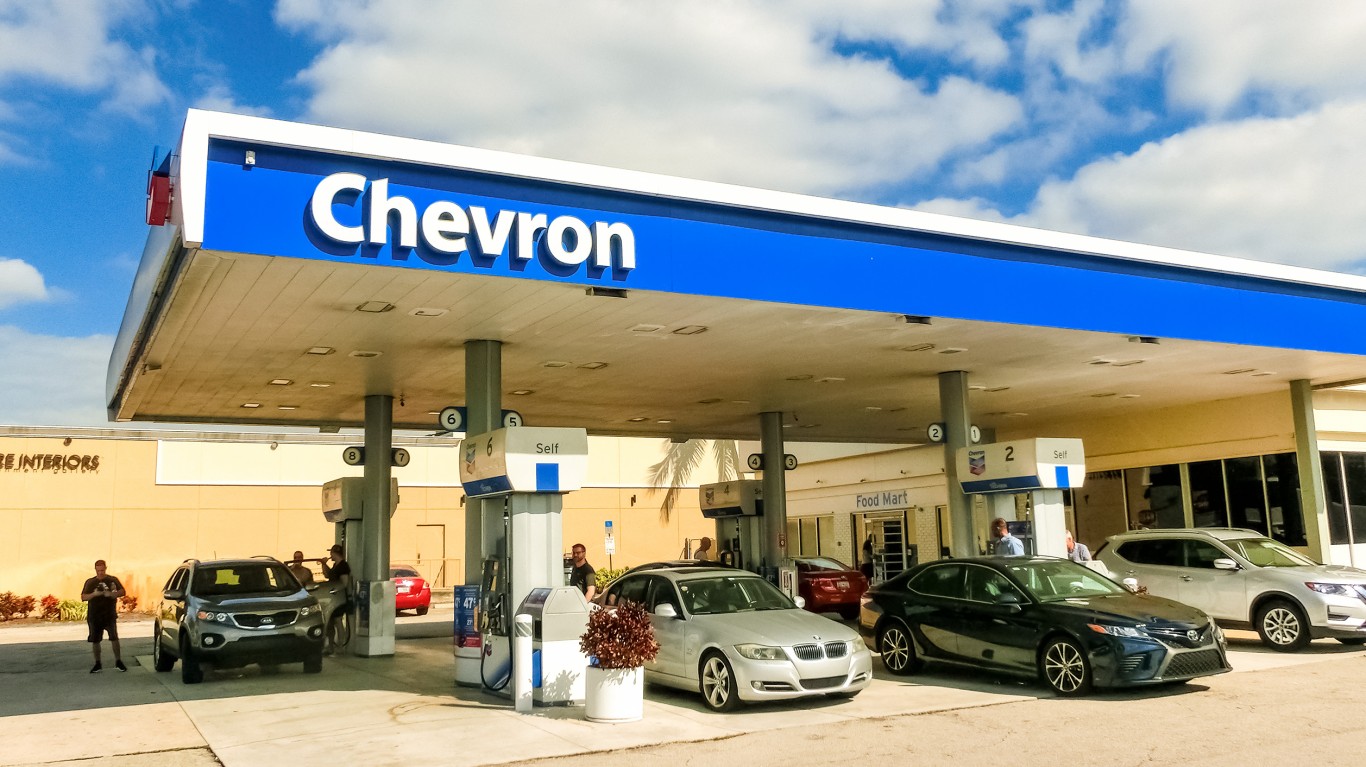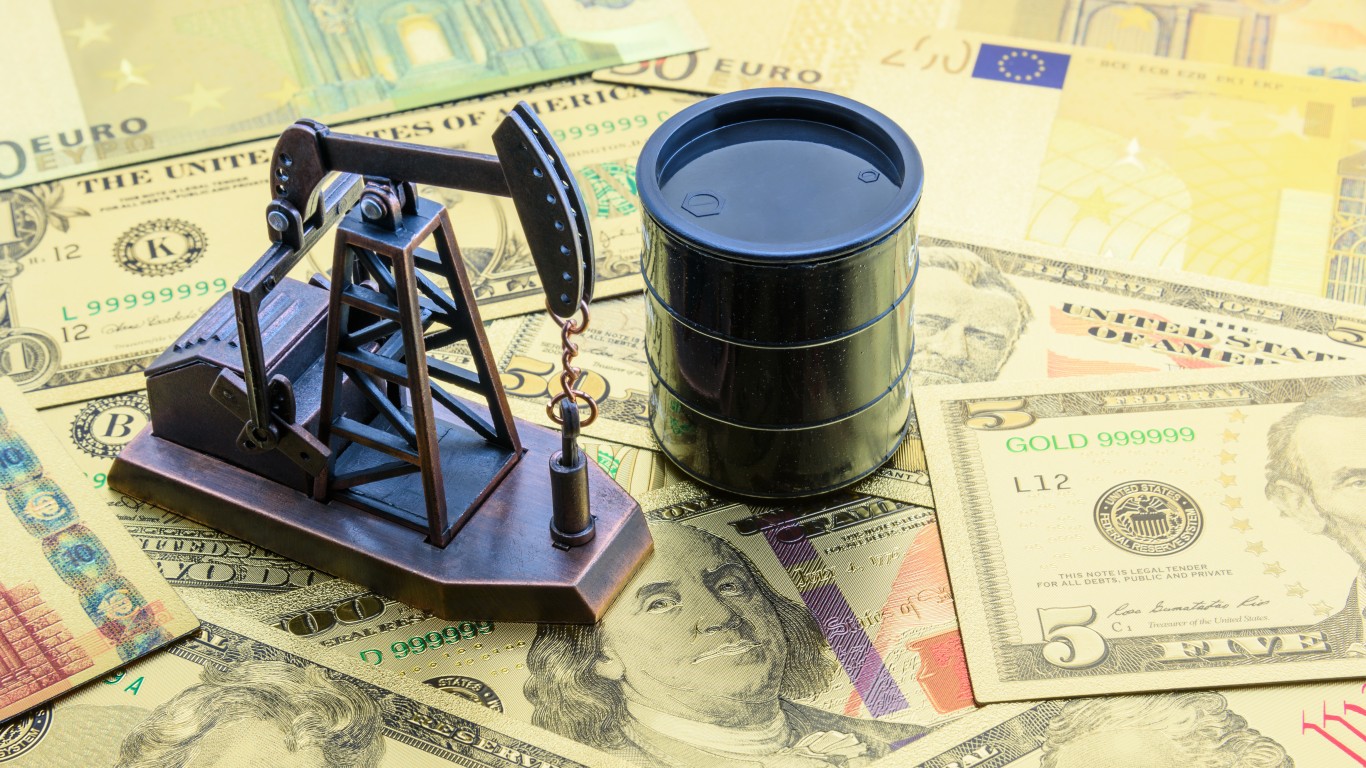
The country’s two supermajor oil companies have announced big impairment charges that will be included in their fourth-quarter results. It’s not the end of life as we know it.
Writedowns for big oil

On the first trading day of 2024, Chevron Corp. (NYSE: CVX) announced it would take an impairment charge of $3.5 billion to $4.0 billion when it reports fourth-quarter results. The writedown of some of its U.S. assets is “[primarily] due to continuing regulatory challenges in [California] that have resulted in lower anticipated future investment levels in its business plans.”
The next sentence is the payoff: “The Company expects to continue operating the impacted assets for many years to come.”
On the same day, the Wall Street Journal published an editorial, “Another California Gift to Texas,” scolding Governor Gavin Newsom for “driving away fossil fuel investment and jobs, even while failing to reduce global CO2 emissions.”
The editorial cites Chevron executive Andy Walze, who wrote in a filing with the state’s energy commission that California’s “arbitrary attacks on a disfavored industry . . . signal to every industry, entrepreneur, manufacturer, and employer that California is closed for business.”
That’s pretty dramatic stuff. Adding to the drama, Exxon Mobil Corp. (NYSE: XOM) announced Thursday in an SEC filing that it would take an impairment charge estimated at $2.4 billion to $2.6 billion in the fourth quarter. According to the company: “Impairments primarily reflect idle Upstream Santa Ynez Unit assets and associated facilities in California. While the Corporation is progressing efforts to enable a restart of production, continuing challenges in the state regulatory environment have impeded progress in restoring operations.”
Why can’t California be more like Texas?

The WSJ editorial goes on to say that California’s energy policies “are merely driving oil jobs and investment elsewhere” to places like Guyana and the Permian Basin, and that despite California’s and “President Biden’s best efforts to crush the industry,” drilling in Texas and North Dakota is saving the U.S economy. Cue the violins.
Texas gets more investment and produces more oil than California because that’s where more of the nation’s oil is. According to the U.S. Energy Information Administration, proved reserves in Texas totaled 17.03 billion barrels at the end of 2021 compared to California’s proved reserves of 1.72 billion barrels. By definition, proved reserves are those that can be produced at a profit with a high degree of certainty (90%). Total U.S. reserves at the end of 2021 amounted to 44.4 billion barrels. The 2022 EIA report on U.S. proved reserves is due later this month.
What will the writedowns cost shareholders?

At the end of fiscal 2022, Chevron reported property, plant, and equipment (PPE) assets totaling $332.05 billion. Net of accumulated depreciation, net PPE totaled $147.85 billion. Exxon reported gross PPE of $479.14 billion and net PPE of $211.14 billion. For both Chevron and Exxon, their writedowns represent about 1.2% of PPE assets.
In 2022, Exxon reported unusual charges totaling $4.5 billion and still reported net income of $55.74 billion and cash flow from operations of $76.8 billion. Chevron reported $950 million in writedowns but still reported net income of $35.47 billion and cash flow from operations of $49.6 billion.
Diluted EPS from continuing operations for Exxon in 2022 totaled $13.26, and the company paid dividends of $3.55 per share. Chevron reported diluted EPS from continuing operations of $18.28 and paid dividends totaling $5.68 per share.
While the 2023 writedowns are not nothing, neither will they have much impact on either the two companies’ profits or their dividend payments. Chevron’s payout ratio last year was about 31%; Exxon’s was 27%. As of Friday morning, Exxon’s payout ratio for the past 12 months is just over 36%; Chevron’s is about 44%.
Face it: the writeoffs these two giants are about to report are de minimis. Chevron’s stock price rose by less than 0.1% the day it announced its writedown. Exxon’s was essentially unchanged. Neither the U.S. economy nor Western Civilization as we know it is about to implode.
Are You Ahead, or Behind on Retirement? (sponsor)
If you’re one of the over 4 Million Americans set to retire this year, you may want to pay attention.
Finding a financial advisor who puts your interest first can be the difference between a rich retirement and barely getting by, and today it’s easier than ever. SmartAsset’s free tool matches you with up to three fiduciary financial advisors that serve your area in minutes. Each advisor has been carefully vetted, and must act in your best interests. Start your search now.
Don’t waste another minute; get started right here and help your retirement dreams become a retirement reality.
Thank you for reading! Have some feedback for us?
Contact the 24/7 Wall St. editorial team.




